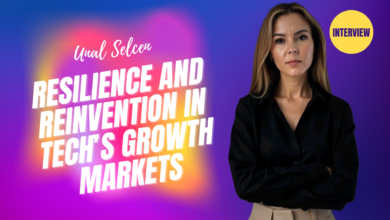UAE’s New Cybersecurity Frameworks Shift Defense From Reactive to Predictive

In this interview, Dr. Ahmed Rubaie, CEO of Anomali, outlines how the UAE’s latest cybersecurity frameworks are transforming early threat detection and enabling real-time intelligence sharing across critical sectors such as finance, energy, and telecom. He highlights the growing need for public–private collaboration, responsible use of AI to counter evolving attacks, and proactive strategies businesses must adopt to stay ahead of emerging cyber threats in the region.
How do the UAE’s latest cybersecurity frameworks enhance early threat detection and facilitate real-time intelligence sharing across sectors?
These frameworks are shifting the mindset from reactive defense to proactive resilience. By enabling real-time sharing across finance, energy, and telecom, the UAE is reducing the window between detection and action. The real breakthrough isn’t just speed, it’s contextual intelligence, so organizations can act decisively rather than in isolation.
What roles does public-private collaboration play in building a more resilient cybersecurity ecosystem in the UAE?
Collaboration is critical because the threat landscape has no borders. Success depends on governments and industries aligning around data visibility and context so that intelligence is actionable, not just shared. That’s how resilience shifts from being an aspiration to becoming a reality.
What practical steps should organizations take to ensure compliance with the UAE’s new cybersecurity regulations and mandates?
Compliance should be seen as a byproduct of resilience, not just a checkbox. Organizations must start with clarity around their data visibility and risk exposure, then leverage automation to keep pace with evolving requirements. Compliance should be seen as a byproduct of resilience, not just a checkbox… Done right, it becomes an enabler of trust. At Anomali, that’s how we help leaders connect visibility and compliance.
With the rise of AI-driven threats like deep fakes and advanced phishing, how can companies better prepare for and mitigate these evolving risks?
AI is amplifying both sides of the equation, it makes attacks faster and more convincing, but it also gives defenders new tools to scale productivity and precision. Businesses should embrace AI with governance and ethics, using it to augment human decision-making rather than replace it. AI should be approached with governance and ethics, so it augments human judgment instead of replacing it. That’s how defenders can respond at machine speed while keeping the human perspective
How is the nature of cyber warfare changing, and what implications does this have for national security and resilience planning in the UAE?
Cyber warfare has become borderless. Threat actors share tactics globally, which means national resilience depends on speed, automation, and alliances. For the UAE, this means treating cyber defense as both a national and international effort, with predictive intelligence at its core. At Anomali, we share this vision by focusing on predictive intelligence and automation that allow defenders to keep pace in a borderless threat environment.
What are the emerging threat actor profiles and attack trends in the MENA region, and how should businesses prepare for what’s anticipated in 2026 and beyond?
State-backed campaigns and organized e-crime are increasing, with finance, energy, and telecom among the most targeted sectors. Threats are becoming more persistent and adaptive, which means businesses can no longer rely on incremental change. They need to modernize architectures, leverage AI responsibly, and anticipate future risks. We help organizations across the region from enterprises to mid-market leaders strengthen visibility and resilience so they’re ready for what comes next.
Cybersecurity is no longer about tools and features, it’s about business resilience, speed of insight, and ecosystems of trust. The UAE and Saudi Arabia are setting a global benchmark in digital adoption, and with that comes new risk. To thrive, leaders must see security as risk management, use AI as a productivity multiplier, and collaborate beyond borders. At Anomali, we’re proud to partner with governments and enterprises in this journey, ensuring security is not just reactive but predictive, proactive, and trusted.




